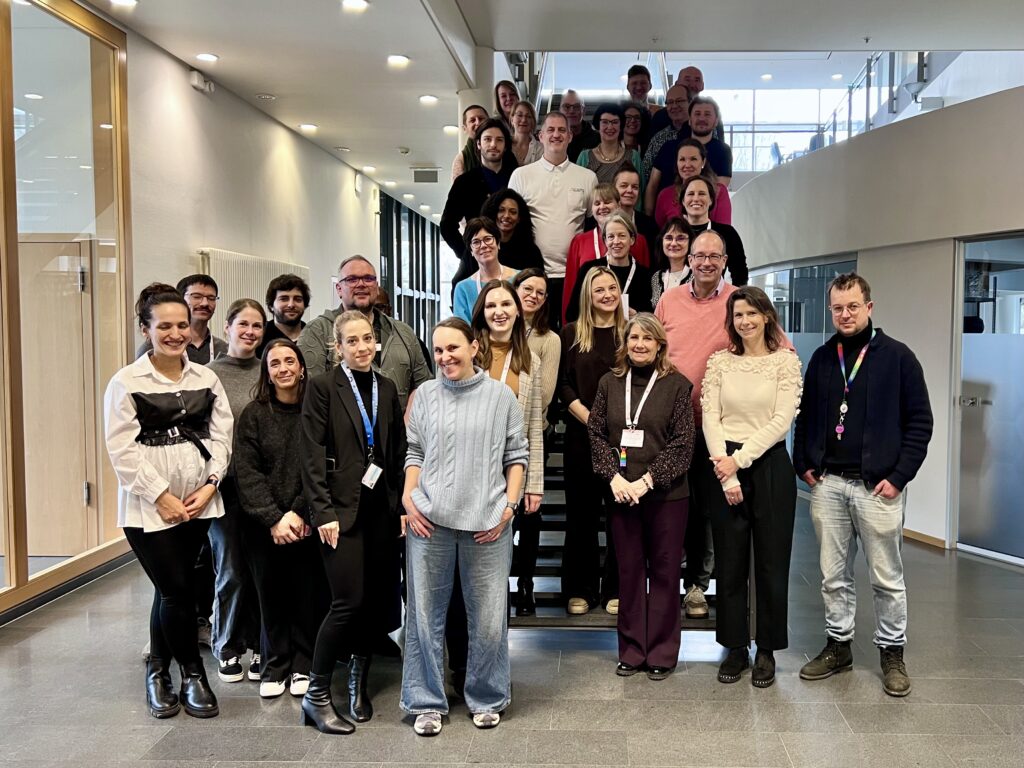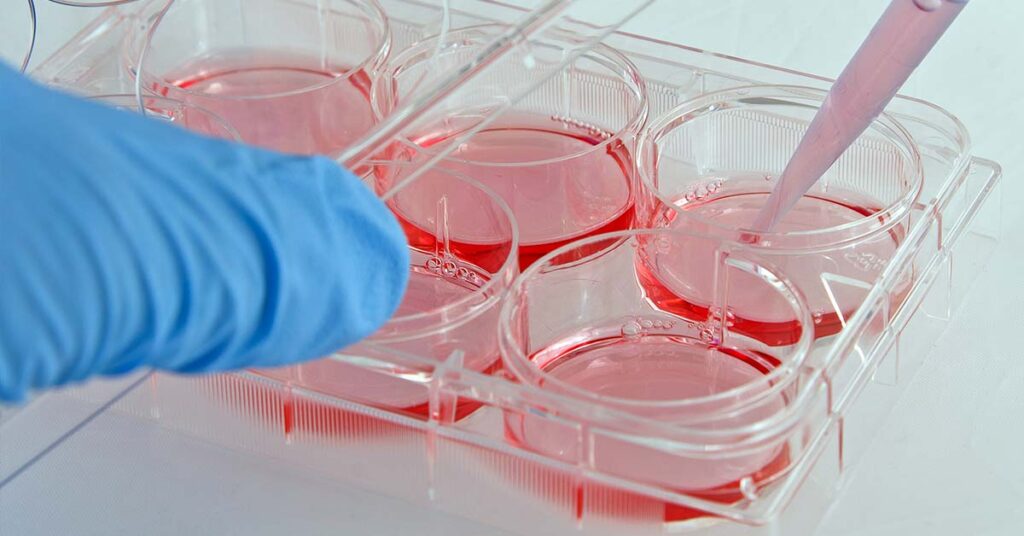News
Elucidating the roles of atypical chemokine receptors in cancer: from molecular biology to clinical relevance and therapy

LIH researchers publish a book chapter in renowned journal
Max Meyrath, Dr Andy Chevigné and Dr Martyna Szpakowska from the Immuno-Pharmacology and Interactomics research group of the Department of Infection and Immunity (DII) published a book chapter on cancer signalling, in collaboration with international partners. The scientific publication, which was released in February 2020 in Advances in Cancer Research, reviews the roles of atypical chemokine receptors (ACKRs) in the different phases of cancer development, progression and metastasis, their clinical relevance, as well as their implications for cancer therapy.
Chemokines are a type of cytokines — small proteins secreted by different types of cells that mediate and regulate immune responses and inflammation — which play a vital role in cell migration, proliferation and survival, and have also been shown to be involved in tumour development and metastasis. In order to exert their functions, chemokines bind to specific receptors located on the surface of the cell. Four of these in particular have been reclassified as “atypical receptors” based on their unconventional activity and functions. These atypical chemokine receptors (ACKRs 1-4), act as scavengers or transporters of chemokines and thereby shape the immune response, playing a role in inflammation and immunity and influencing a variety of processes in cancer biology, from tumour initiation to metastasis.
Atypical chemokine receptors in animal models
Three of these ACKRs — specifically ACKR1, ACKR2 and ACKR4 — have been reported to display a predominantly tumour-inhibitory action in different animal models. Indeed, they inhibit tumour growth and limit the onset of metastasis by hampering the ability of cancer cells to enter blood vessels, survive in the circulation, leave the blood stream (a process known as extravasation) and invade and proliferate in the tissues surrounding the primary tumour. Moreover, these receptors also prevent angiogenesis, i.e. the excessive formation of new blood vessels which supply the tumour with oxygen and nutrients to sustain its growth. Conversely, ACKR3 has a dual effect, depending on the context and on the presence of other receptors or molecules, having been demonstrated to either promote or suppress cancer cell proliferation, migration and invasiveness.
Atypical chemokine receptors in the clinical context
Clinical data have shown similar effects in patient-derived samples, where the expression of ACKR1, ACKR2 and ACKR4 in pancreas, breast, cervical, thyroid and colorectal cancers is generally linked with a more favourable prognosis, improved survival and better patient outcomes. In contrast, the presence of ACKR3 correlates with increased tumour growth and metastasis, excessive angiogenesis and therefore adverse clinical outcomes and poor prognosis in cancers of the prostate, kidney, liver, colon, brain and breast, among others. The chapter also reports on the possible use of ACKRs in predicting a patient’s response to treatment, with ACKR3 being potentially associated with resistance to chemotherapy in prostate cancer and various types of carcinomas. However, the potential of the other three receptors as markers to predict treatment response has not yet been fully explored.
Targeting atypical chemokine receptors for cancer therapy
“The interactions between ACKRs, chemokines and other molecules are very complex, and their roles and functions in cancer biology are very much dependent on the overall context. This means that developing therapeutic molecules that effectively target these ACKRs is particularly challenging”, explains Dr Szpakowska, scientist within the Immuno-Pharmacology and Interactomics research group and corresponding author of the publication. “Indeed, no drugs against ACKRs have been accepted or tested in clinical trials yet. However, some progress has been made in this respect with what we call ACKR ‘modulators’. These are small novel molecules or antibodies developed to interact with ACKRs and ‘interfere’ with their functions, and which have been shown to inhibit tumour growth, metastasis and angiogenesis in prostate cancer, certain forms of leukaemia and others”, she adds. Nevertheless, such ‘modulators’ have so far only been described for ACKR3.
“Although ACKRs have been proved to affect tumour growth, angiogenesis and metastasis, their role in a variety of other cancer-related processes has not been thoroughly explored yet. We therefore need a deeper and more holistic level of understanding of their functions in relation to the specific contexts if we want to successfully and effectively target these receptors with new therapeutics”, concludes Dr Chevigné, leader of the Immuno-Pharmacology and Interactomics research group.
Investigating and targeting atypical chemokine receptors at LIH
ACKRs are among the main research focuses of the group of Immuno-Pharmacology and Interactomics (IPI). The involvement of these receptors in cancer is currently investigated in close collaboration with different groups of the Department of Oncology. One of the ongoing collaborative axis is with the Tumor Immunotherapy and Microenvironment (TIME) group, headed by Dr Bassam Janji, and is supported by FNR Pathfinder and Télévie “INTERceptor” projects. Dr Martyna Szpakowska has recently joined part-time the TIME research group to strengthen the transversal activities between IPI and TIME and to coordinate, together with Yong-Jun Kwon, drug screening efforts on the Early Drug Discovery Platform of the Transversal Translational Medicine (TTM) unit of LIH.
MORE INFORMATION
Publication:
The chapter was published in February 2020 in the journal “Advances in Cancer Research”, with the full title “Chapter Four – The diverse and complex roles of atypical chemokine receptors in cancer: From molecular biology to clinical relevance and therapy”. The full publication can be accessed here.
Collaborations and funding:
This publication is an international collaboration between the Department of Oncology-Pathology of the Karolinska Institutet (Stockholm, Sweden), the Immuno-Pharmacology and Interactomics research group of the LIH Department of Infection and Immunity and the biotech company Amcure GmbH (Eggenstein-Leopoldshafen, Germany).
It was supported by grants from the Luxembourg Ministry of Higher Education and Research (MESR), the Luxembourg National Research Fund (FNR), the Belgian Fund for Scientific Research (FRS-FNRS), the Swedish Cancer Society, the Swedish Research Council, the Swedish ‘Radiumhemmets’ Research Funds, the EU Innovative Training Networks (ITN) programme and the Stockholm City Council.







